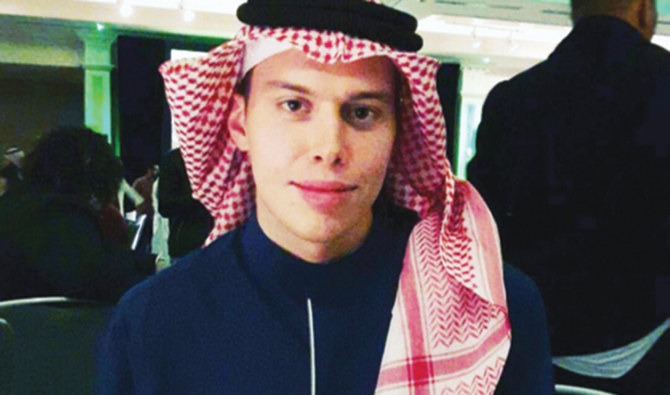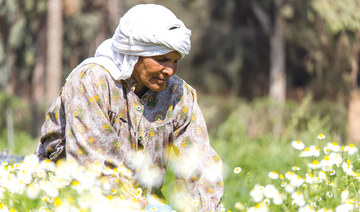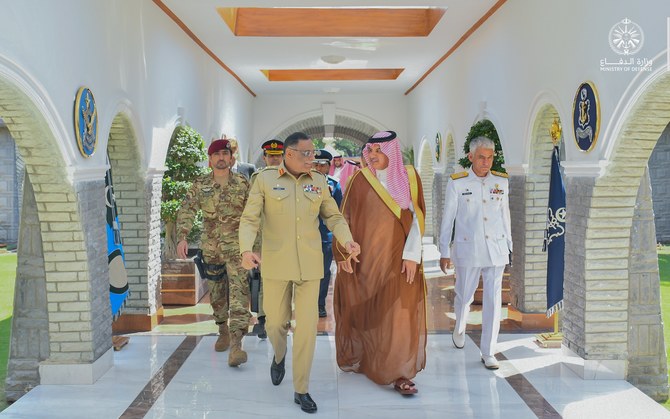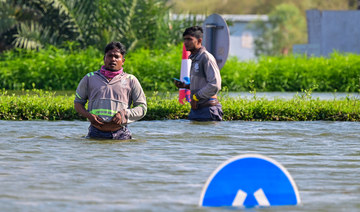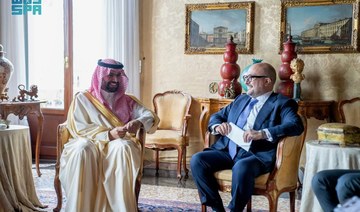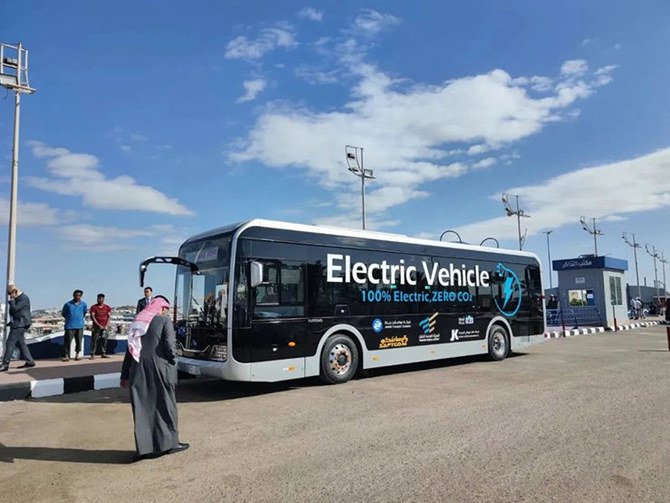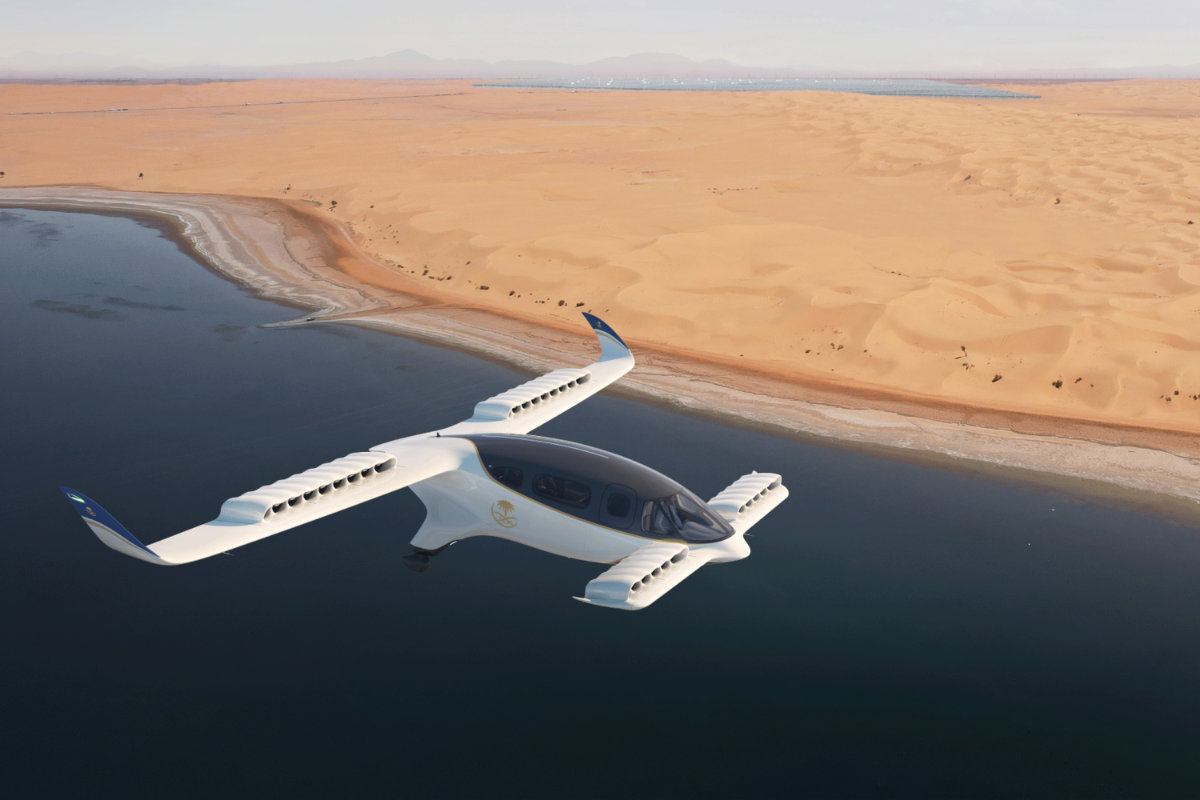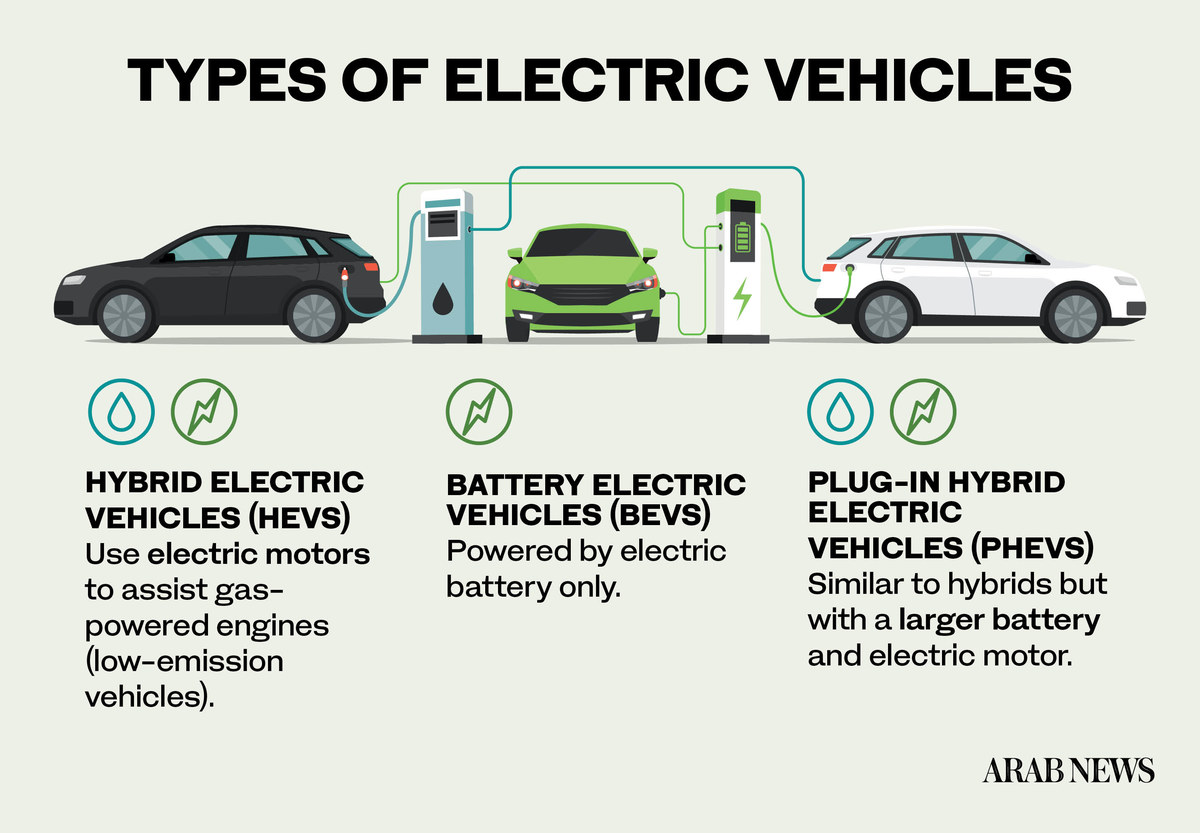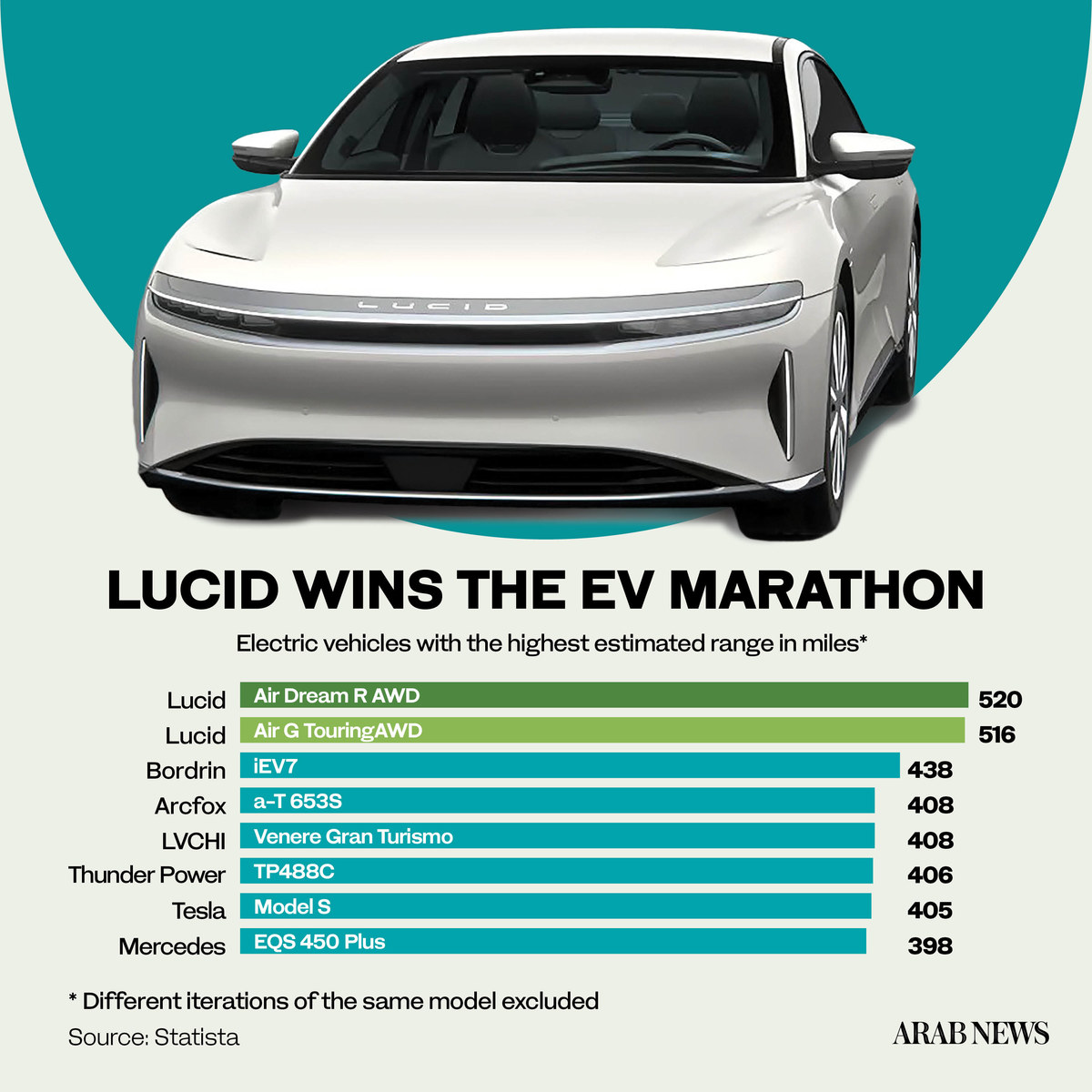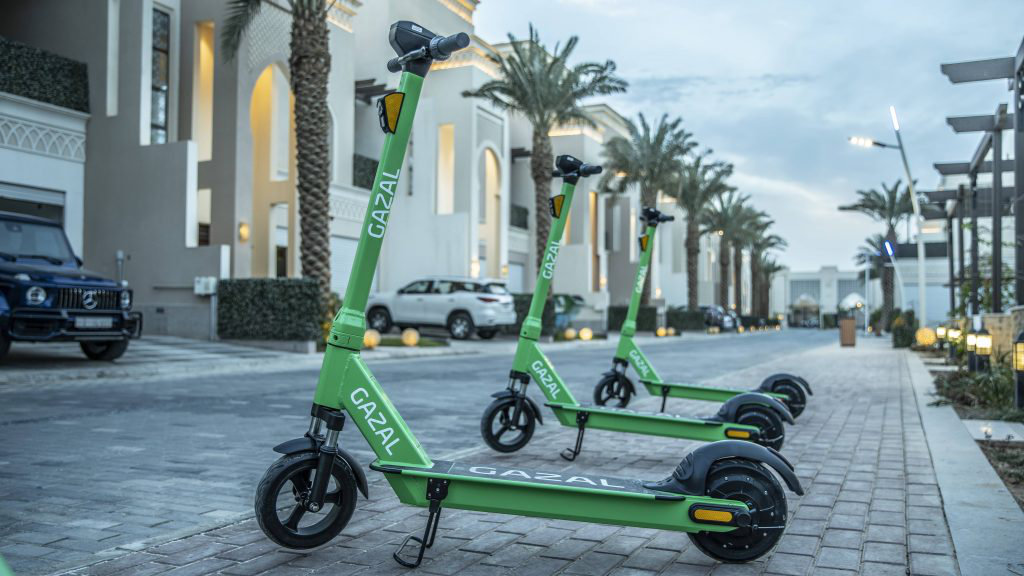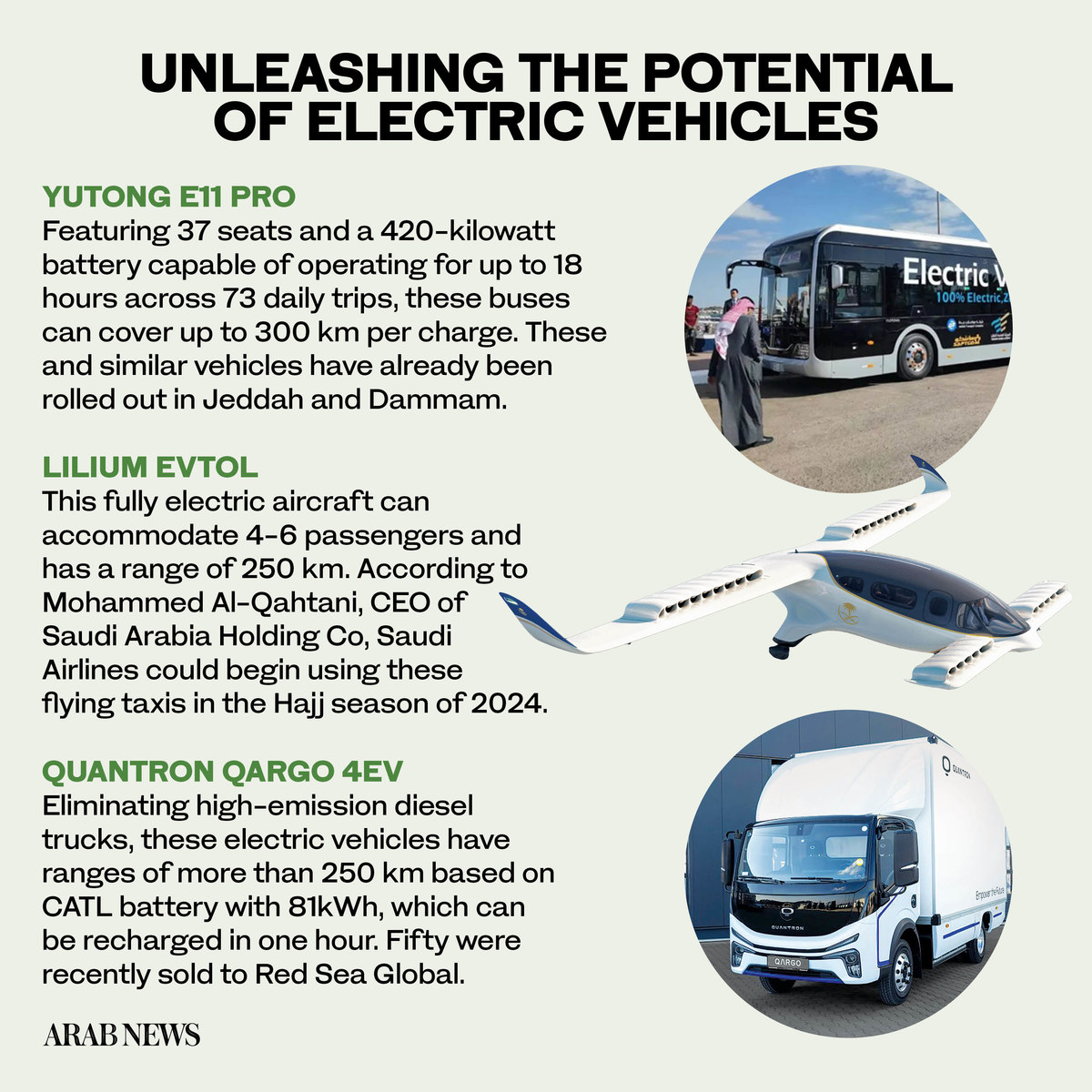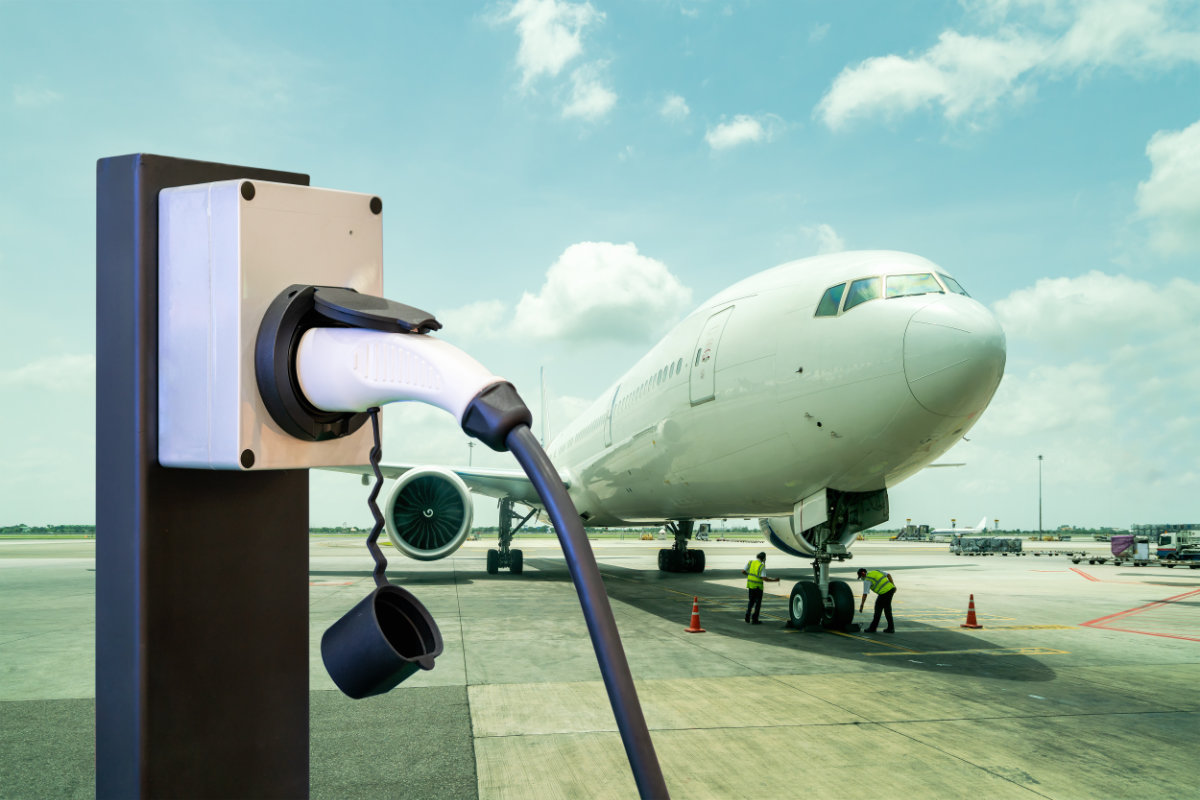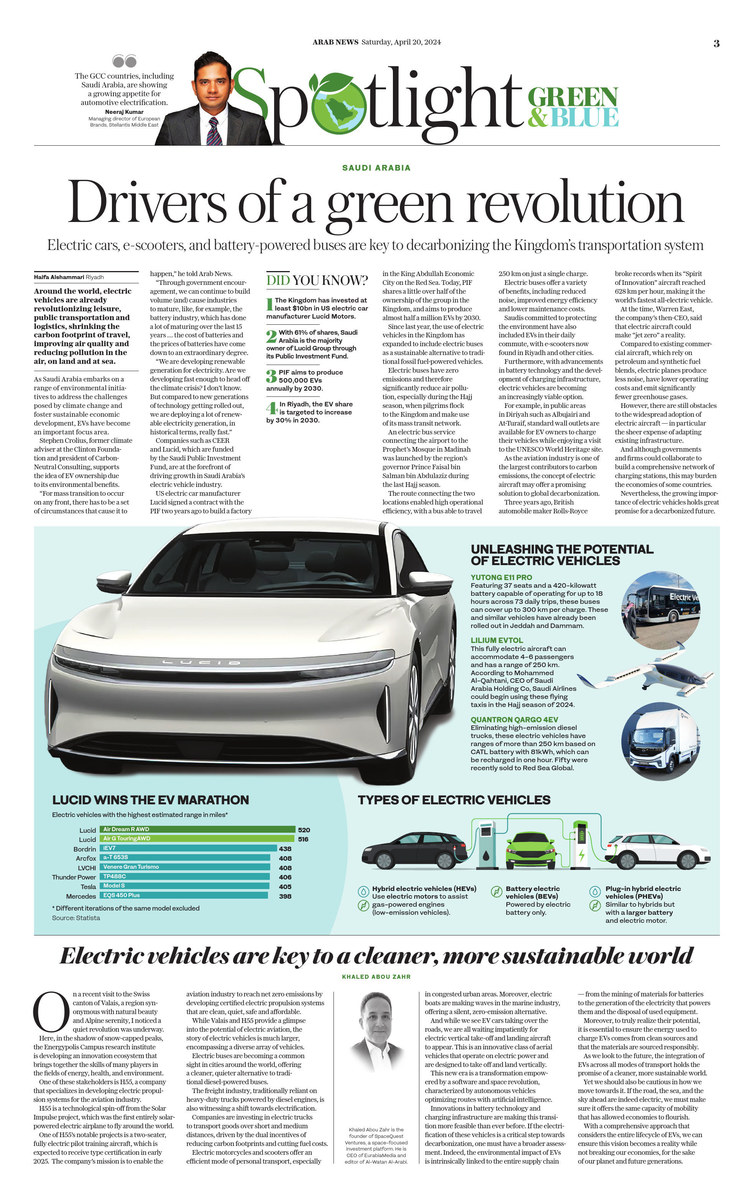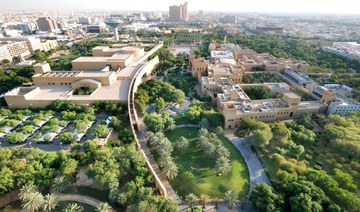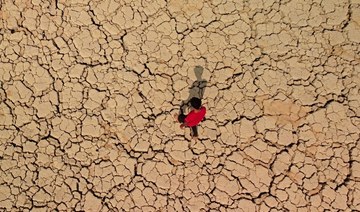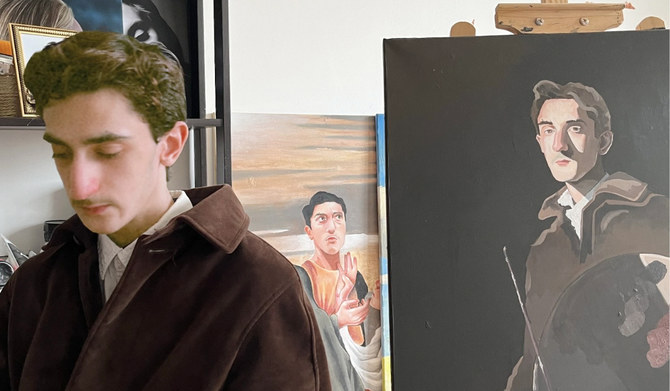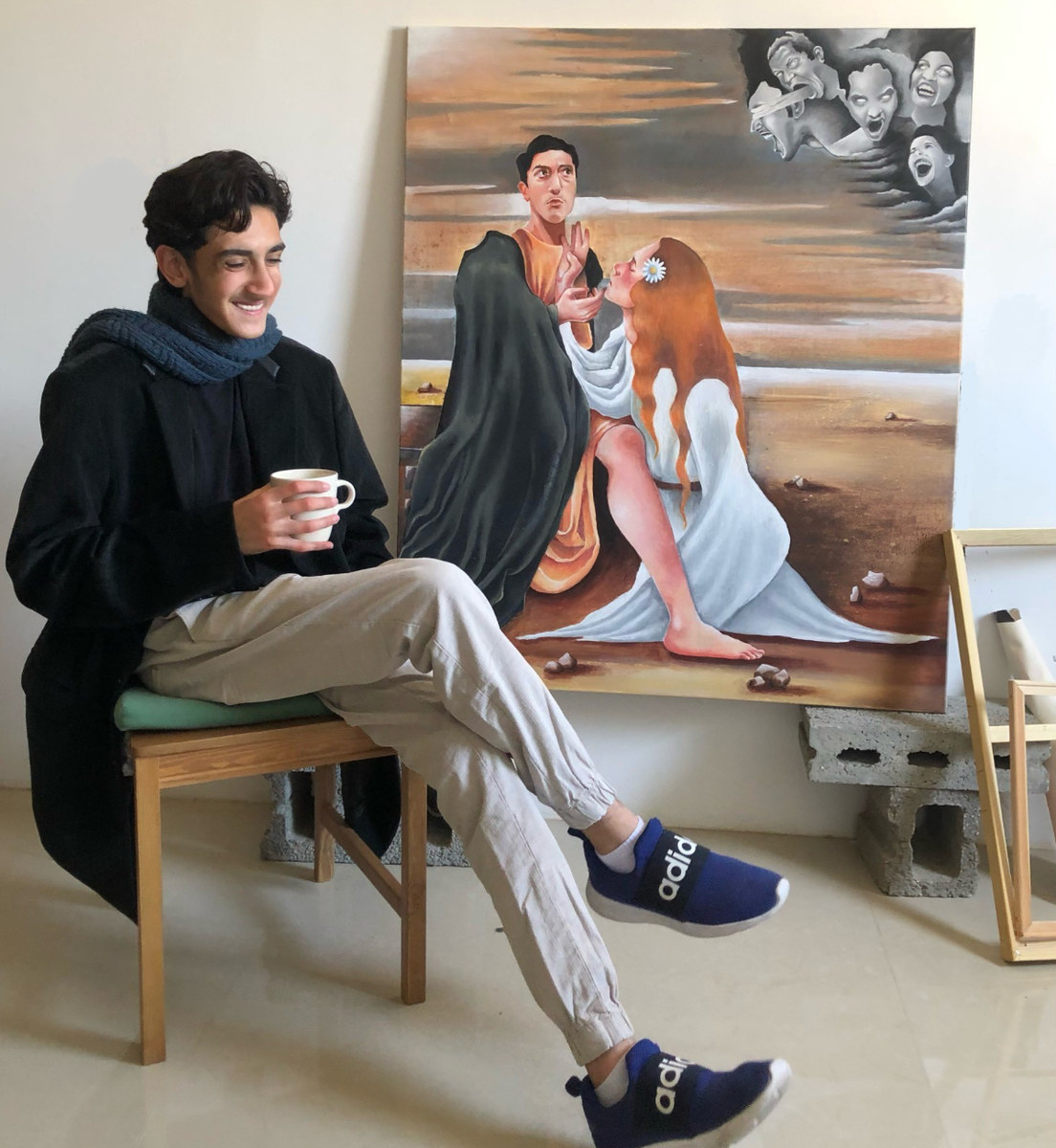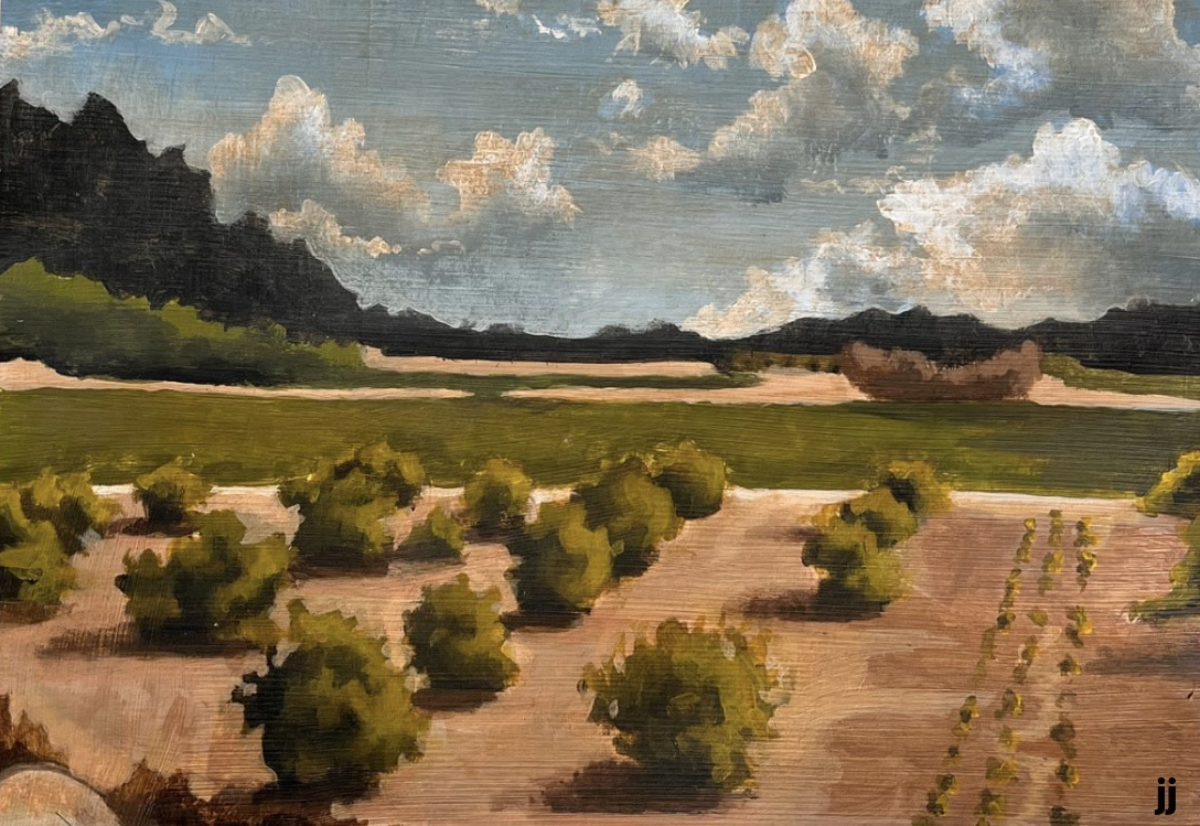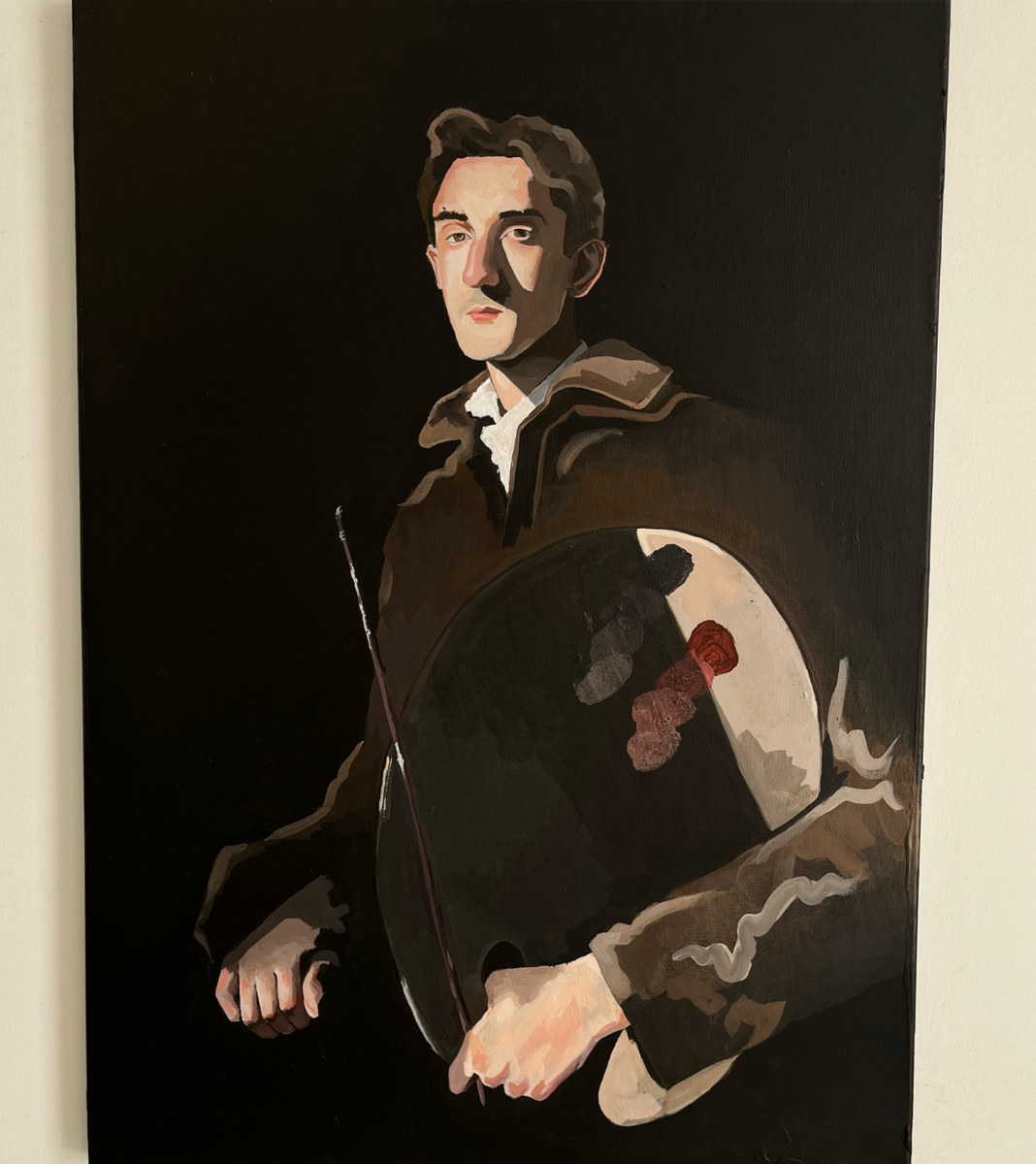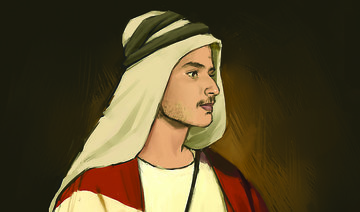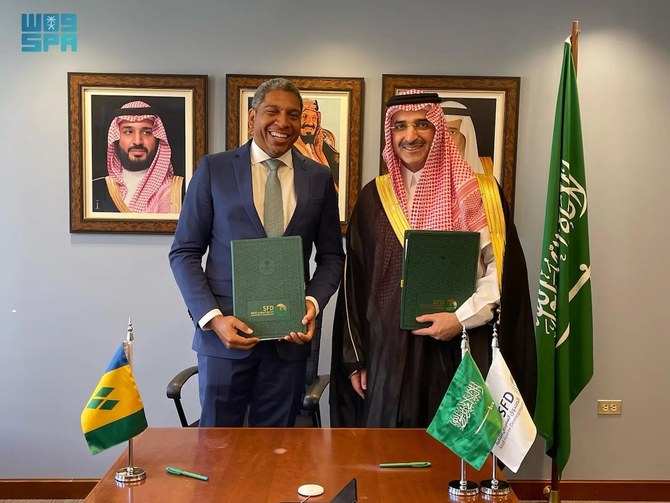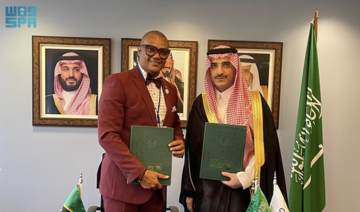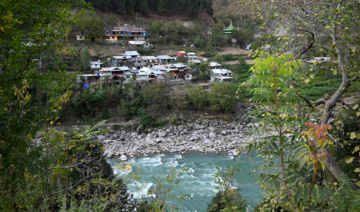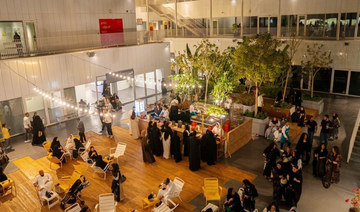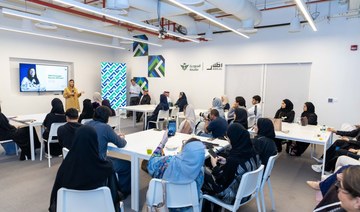JEDDAH: Today’s generation of young, environmentally conscious Saudis is turning to more sustainable alternatives in a bid to reduce plastic waste in their everyday lives. Items such as reusable straws, cups and grocery bags are becoming commonplace at coffee shops and supermarkets in the Kingdom.
According to UN Environment, manufacturers around the world produce more than 300 million tons of plastic waste every year.
Taha Boksmati, 26, an environmental specialist at the Saudi General Authority of Meteorology and Environmental Protection, is the founder of Jeddah’s Hejaz Ploggers group, which has teamed up with the British International School to source plastic materials that can be reused by the school’s artists.
After discovering the growing worldwide trend of plogging, an activity that combines jogging and picking up litter, Boksmati and his team started combing the coastline near Jeddah.
“We found an enormous amount of trash covering our beautiful beaches and endangering marine life,” he said.
“We realized instantly the amazing number of plastic straws, caps and bottles that are consumed and thrown away every day. The awareness of reducing and reusing waste is low in our community.
“We are simply used to the luxury of single-time use followed by immediate reckless disposal.”
NUMBER
300 million Tons of plastic waste each year
The ploggers’ group partnered with the British International School and helped plog for plastic material to be reused by the school’s artists, and also upcycled collected plastic into artistic designs suitable for display and sale.
“In return, our members were given reusable items as a token of appreciation for their distinguished efforts. Reusable gifts included a stainless steel water bottle, a ceramic coffee cup, fabric shopping bags, bamboo utensil sets and a zero-waste home guide book.”
Boksmati said that members of the plogging group already choose reusable items, and now he is seeking to raise awareness of the issue outside his environmental community.
“I always share the benefits of reusable items as well as remind people of the consequences if we do not adopt these reusing and reducing practices,” he told Arab News.
“Few people realize that plastic waste blocks the natural ability of our oceans to absorb carbon dioxide, further worsening the global warming problem, not to mention the dangers of microplastics, which are now found in almost everything we use, such as clothing and water bottles, and even in the fish we eat,” he said.
FASTFACT
PepsiCo. has pledged by 2025 to package its Aquafina water in aluminum cans rather than plastic bottles.
Boksmati said that his team hoped to establish a junior plogging group, as well as strengthen its collaboration with international and local schools.
“We want to engage with students of all ages to teach them about recycling and upcycling. We also aim to encourage alternatives to drinking water from plastic bottles as well as encourage people to reduce meat intake due to its environmental impact on water resources.”
He added: “We hope to strengthen our brand auditing activity during our plogs, enabling our international partner, Breakfreefromplastic, to pressure local and international companies to make their products without plastic packaging and transition to other eco-friendly alternatives.”
The food giant PepsiCo, for example, has pledged by 2025 to package its Aquafina water in aluminum cans rather than in plastic bottles, he said.
Tala Al-Marbai, an 18-year-old foundation student at King Abdul Aziz University, said the Kingdom’s approach to plastic waste reduction has been improving since 2016.
“Then not so many cared about our environment. But it’s the community’s job to spread awareness about the health of the environment. A video went viral on social media showing a plastic straw that was found inside a sea turtle’s nostrils. Many animals have been harmed because of our negligence toward nature,” she told Arab News
Al-Marbai said this alternative is cost-efficient as well.
“I bought a stainless steel cup and straw from an online store called Boutiqaat, which cost SR164 ($44) with delivery. It’s a bit expensive, but if you buy an iced coffee, that will cost SR24, so after seven times you would be spending the same amount of money,” she said.
Al-Marbai said that she is the only environmentally conscious person among her group of friends, and she hopes to influence her circle.
“One person will influence another and the message will spread. Imagine one person having reusable items and, bit by bit, people surrounding them might do the same. Eventually, even companies, markets and shops will produce more environmentally friendly items and products.”
She added: “I hope people remember every time they throw any plastic around, how many creatures they are going to hurt or even kill. Globally, it is estimated that more than 100 million marine creatures are killed each year by plastic waste.”
Bateel Al-Saleem, 21, who is studying French at King Saud University and is a part-time barista, said that she turned to sustainable alternatives after watching videos of the harmful effects of plastic on marine life.
“I was scrolling through social media one day and I saw a video of a turtle with a plastic straw stuck in its nose. It made me feel so sad. I started googling the effects of plastic on the environment and what I could do to help,” she told Arab News
Al-Saleem now takes her reusable items wherever she goes.
“I keep a bag of my reusable utensils in my backpack and I bring a cup with me if I’m going to a coffee shop,” she said.
“Some cafes refuse to use my cup because it has another coffee shop logo and sometimes they refuse because it’s not the same size as their cups. We definitely need to spread awareness about reusable items.”
She added: “My closest friends are environmentally conscious as well, but with my other friends I usually use my stuff in front of them so it can spark up a conversation.”
Al-Saleem is also part of a volunteer EarthUniTeam which promotes environmental awareness in universities.






